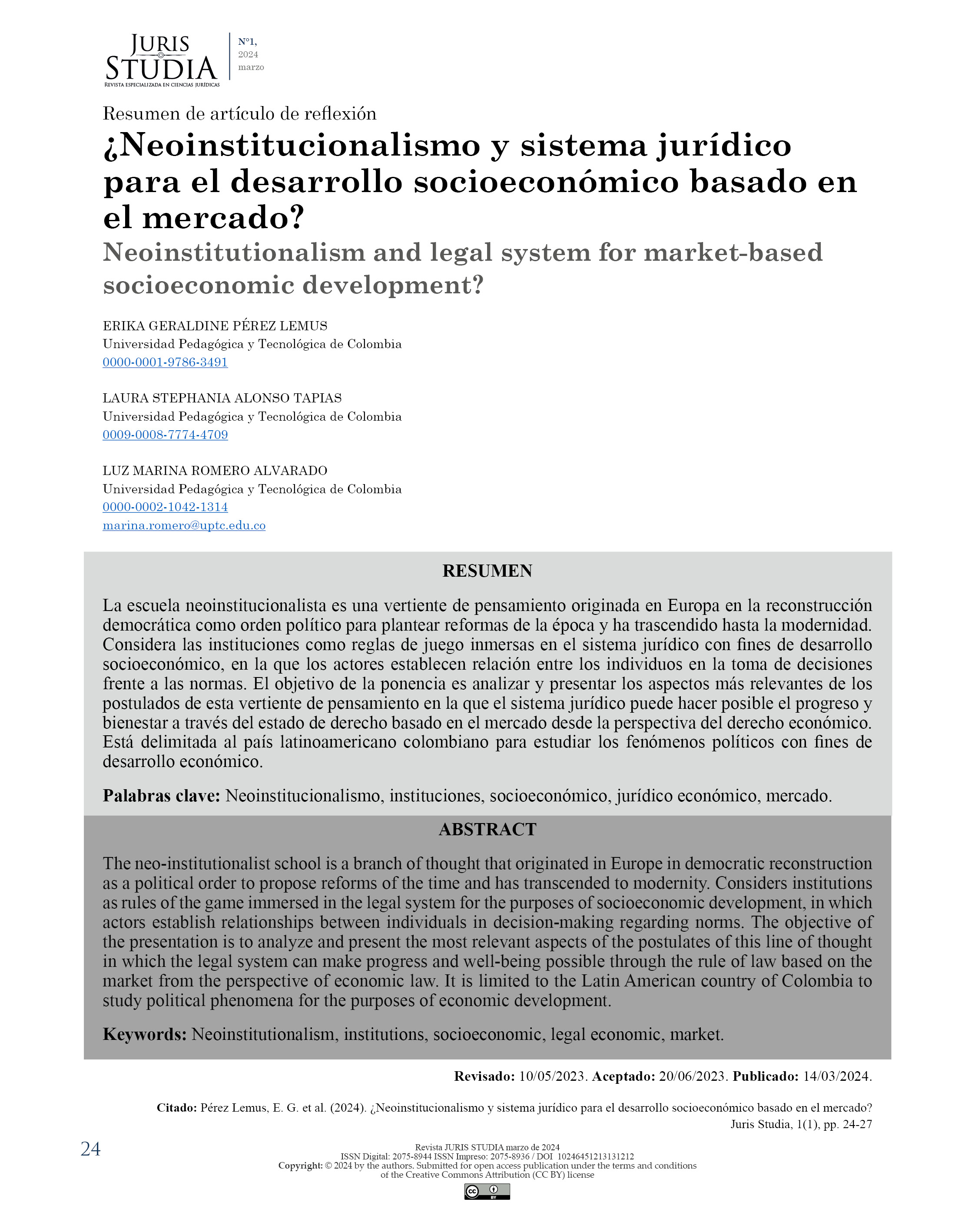Neo-institutionalism and the legal system for market-based socio-economic development?
DOI:
https://doi.org/10.52428/12345678.v1i1.1084Keywords:
NeoinstitutionalismAbstract
The neo-institutionalist school is a branch of thought that originated in Europe in democratic reconstruction as a political order to propose reforms of the time and has transcended to modernity. Considers institutions as rules of the game immersed in the legal system for the purposes of socioeconomic development, in which actors establish relationships between individuals in decision-making regarding norms. The objective of the presentation is to analyze and present the most relevant aspects of the postulates of this line of thought in which the legal system can make progress and well-being possible through the rule of law based on the market from the perspective of economic law. . It is limited to the Latin American country of Colombia to study political phenomena for the purposes of economic development.

Downloads
Published
How to Cite
Issue
Section
License
Copyright (c) 2024 ERIKA GERALDINE PÉREZ LEMUS, LAURA STEPHANIA ALONSO TAPIAS, LUZ MARINA ROMERO ALVARADO

This work is licensed under a Creative Commons Attribution 4.0 International License.
Authors who publish with this journal agree to the following terms:
- Authors retain copyright and grant the journal right of first publication with the work simultaneously licensed under a Creative Commons Attribution License 4.0 that allows others to share the work with an acknowledgement of the work's authorship and initial publication in this journal.
- Authors are able to enter into separate, additional contractual arrangements for the non-exclusive distribution of the journal's published version of the work (e.g., post it to an institutional repository or publish it in a book), with an acknowledgement of its initial publication in this journal.
- Authors are permitted and encouraged to post their work online (e.g., in institutional repositories or on their website) prior to and during the submission process, as it can lead to productive exchanges, as well as earlier and greater citation of published work.










